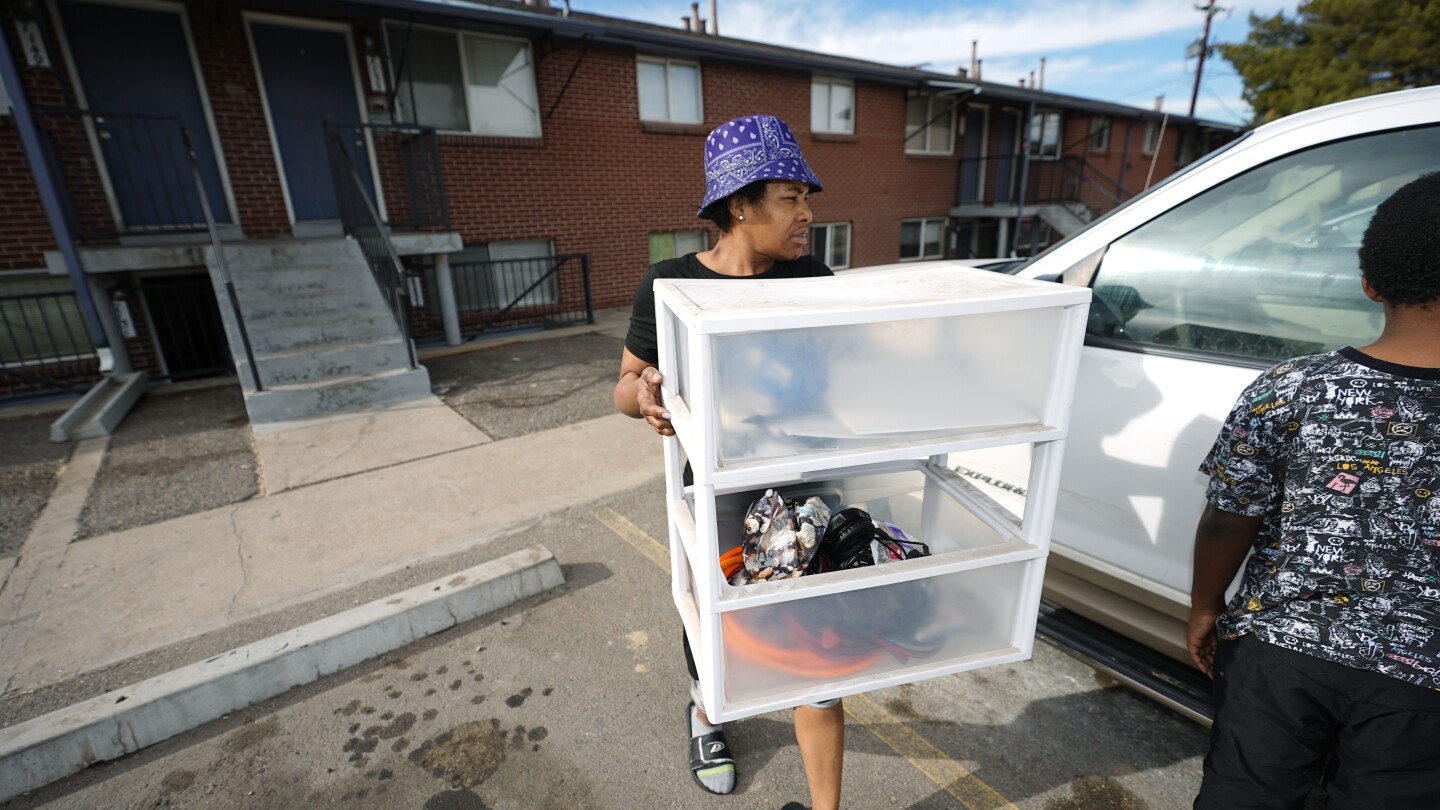- cross-posted to:
- [email protected]
- cross-posted to:
- [email protected]
Single mom Caitlyn Colbert watched as rent for her two-bedroom apartment doubled, then tripled and then quadrupled over a decade in Denver — from $750 to $3,374 last year.
Every month, like millions of Americans, Colbert juggled her costs. Pay rent or swim team fees for one of her three kids. Rent or school supplies. Rent or groceries. Colbert, a social worker who helps people stay financially afloat, would often arrive home to notices giving her 30 days to pay rent and a late fee or face eviction.
“Every month you just gotta budget and then you still fall short,” she said, adding what became a monthly refrain: “Well, this month at least we have $13 left.”
Millions of Americans, especially people of color, are facing those same, painful decisions as a record number struggle with unaffordable rent increases, a crisis fueled by rising prices from inflation, a shortage of affordable housing and the end of pandemic relief.
The latest data from the Harvard Joint Center for Housing Studies, released in January, found that a record high 22.4 million renter households — or half of renters nationwide — were spending more than 30% of their income on rent in 2022. The number of affordable units — with rents under $600 — also dropped to 7.2 million that year, 2.1 million fewer than a decade earlier.
…
In Congress, lawmakers are working on a bill that would expand a federal program that awards tax credits to housing developers who agree to set aside units for low-income tenants. Supporters say that could lead to the construction of 200,000 more affordable homes. Some lawmakers are also calling for more rental assistance, including a significant increase in funding for housing vouchers.



deleted by creator
That sounds like rent control with extra steps
We work with the tools we have…
Land value tax is all that’s needed.
As long as its legal to build alternative property.
The reason that rent is expensive but the house is shit, is because the house is actually worthless and the land is valuable. If people got taxed on the land they would be incentivised to knock it down and build much higher density that the market demands. It’s honestly a failing of the market that houses are so low density in such high value land.
This would absolutely decrease rent and can also allow for better public transport.
Mix use developments will also help a lot.
What you mention will not work at all.